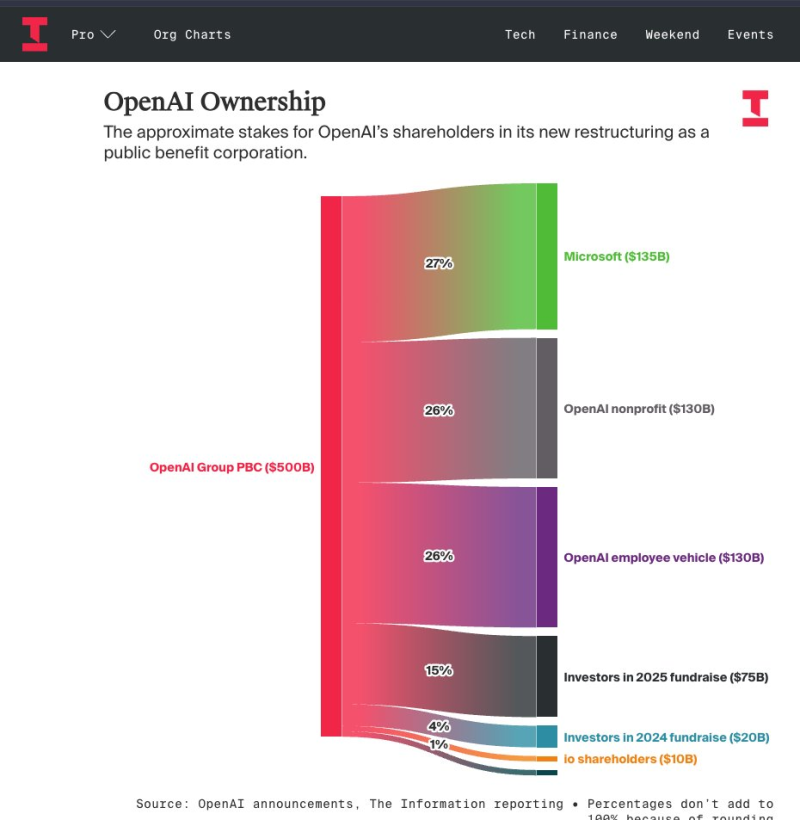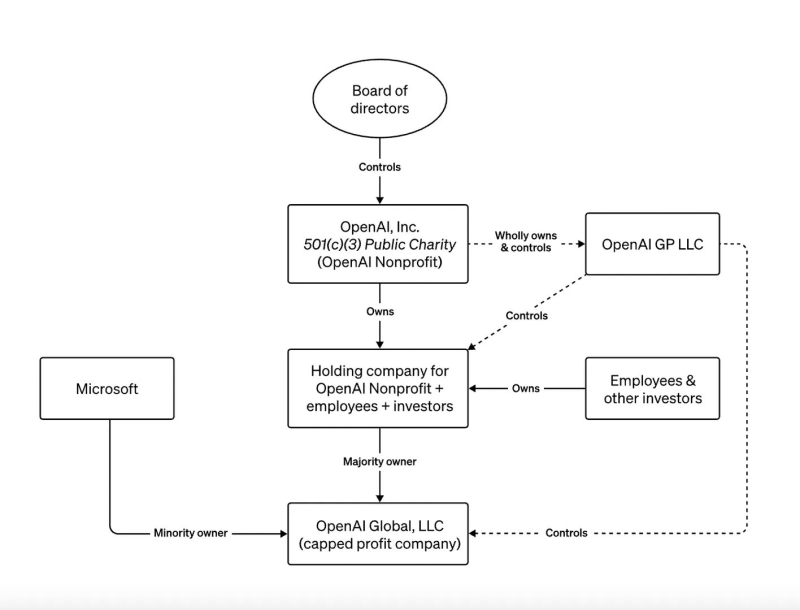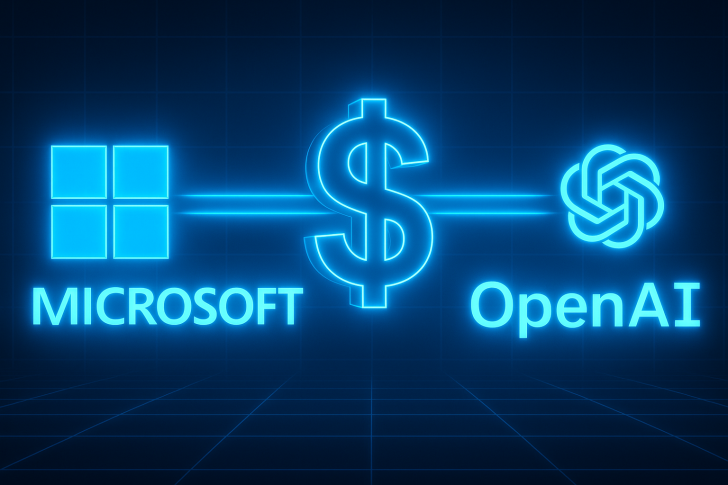● In a detailed breakdown shared by Amir Efrati, OpenAI's new ownership structure reveals one of tech's most intricate corporate reshuffles. Now operating as OpenAI Group PBC, the company has hit a valuation around $500 billion. Microsoft stands as the biggest external shareholder with 27%, worth about $135 billion. The deal locks in Microsoft's influence through equity, IP agreements, and exclusive Azure rights.

● Kakashii points out that the restructuring hints Microsoft doesn't expect AGI before 2030. The IP framework means that even if OpenAI dissolves, Microsoft keeps the crown jewels—the models, research methods, and core assets. As Kakashii put it, "If OpenAI disappears, Microsoft will retain the most valuable assets, its IPs." It's a defensive play in a fast-moving market.
● Here's how ownership breaks down: Microsoft (27%), OpenAI Nonprofit (26%), employees (26%), 2025 investors (15%), 2024 investors (4%), with 1% for early backers. The dual structure—nonprofit plus capped-profit entity—keeps OpenAI's mission intact while giving investors limited returns and the board final say.
● The nonprofit's board still runs the show, overseeing subsidiaries like OpenAI Global LLC and OpenAI GP LLC. Meanwhile, the setup lets Microsoft tap into OpenAI's product line—GPT models, enterprise tools, APIs—without formal control, dodging regulatory heat while securing commercial leverage.
● Industry watchers, echoing John Coogan's comment that this was the "Super Bowl for people who know this chart," call it a masterclass in corporate strategy. With OpenAI's valuation soaring and Microsoft locked in through 2030, analysts say we're entering a new phase where Microsoft isn't just a partner—it's the long-term keeper of OpenAI's intellectual foundation.

 Marina Lyubimova
Marina Lyubimova

 Marina Lyubimova
Marina Lyubimova


